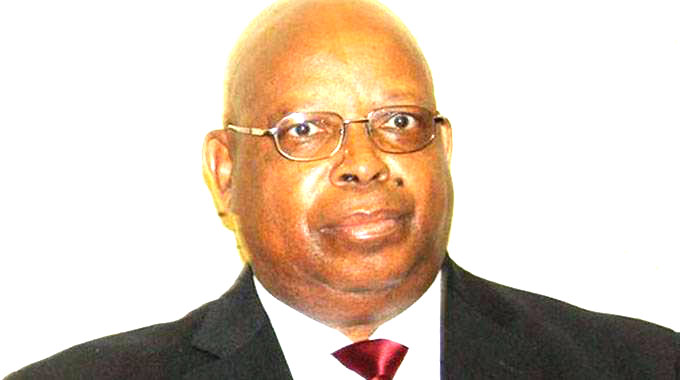Parly pushes for stronger audit office

Walter Nyamukondiwa Kariba Bureau
PARLIAMENT is set to pursue the introduction of measures that will strengthen the Audit Office Act so that the Auditor-General can censure entities that fail to properly account for public funds.
This comes amid recurrence of some malpractices in the public sector including ministries, local authorities and State enterprises where payments are continuously being made without supporting documents.
Parliamentarians were disturbed by observations in the 2017 Auditor-General’s report which showed discord between what was paid out from the Appropriation Account to what beneficiary line ministries could account for.
Addressing a Public Accounts Parliamentary Portfolio Committee recently, Speaker of Parliament Advocate Jacob Mudenda said Parliament would soon write to the Attorney-General and Ministry of Finance and Economic Development.
“We are going to write an opinion on strengthening the Audit Office Act so that you (Auditor-General) do not have to rely on Section 91 of the Public Finance Act. We need to strengthen the Act so that it carries some censure which may arise from your observation,” said Adv Mudenda.
“We will address ourselves to the Attorney-General and copy to the Ministry of Finance and Economic Development and also the Auditor-General so that the process of cleaning of that Act can begin in earnest.”
The move is aimed at imposing penalties on offending entities and individuals when a red flag is raised by the Auditor-General in her report.
This follows recurrent misbehaviour by ministries, local authorities and State enterprises raising fears of misappropriation and abuse of public funds by failing to adhere to existing systems and procedures.
Hinting on findings of the 2018 Auditor-General’s Report expected to be released soon, Auditor-General Mrs Mildred Chiri said some entities confirmed receiving payments from the Ministry of Finance, but the purpose could not be established in some instances.
“Regarding Honourable Berita Chikwama’s question regarding confirmation from service providers, yes we do that. Like with the 2018 report you will find that it is there where we have confirmed. Some of the service providers confirmed receiving payment, but what is missing in most cases is the breakdown of what the money was for,” said Mrs Chiri.
She said the 2018 report will also contain a list of some of the ministries which disowned the amounts paid on their behalf.
The 2017 Auditor-General’s Report shows that the Ministry of Finance made direct payments to some suppliers of goods and services on behalf of ministries without supporting documents.
“Ministry of Finance made direct payments to various suppliers of goods and services on behalf of ministries without adequate documentation.
“Resultantly, there were cases of overpayment to suppliers and expenditure not accounted for in some cases. Reconciliations of the debts that were being paid by Treasury and what the ministries had in their records were not carried out,” reads part of the Auditor-General’s report.
Mrs Chiri said the main challenge came with direct payments where ministries acknowledged payment of water and electricity bills for instance, but they did not provide them with supporting documents.
This drew the ire of Parliamentarians who felt that existing systems and procedures should be followed religiously and where ministries, local authorities and State enterprises fail to comply, heads should roll.
Ministry of Finance and Economic Development acting secretary Mr Zvinechimwe Churu said such direct payments were made in emergency situations like the purchase of grain for the strategic reserves and overdue bills.
“It is true that in certain instances we pay to service providers directly. That happens under different circumstances. I will give an example. The Ministry of Finance is approached by service providers let’s say TelOne and they advise us that they are now facing serious financial challenges, facing litigation because they are not being paid by Government entities.
“The ministry makes a decision that if we pay through the respective ministry, it will not honour that. This is one basis for us paying the service providers directly. Accepted that there are challenges there because you need to have a whole list of invoices, but in many cases we actually go to the ministries and ask how much they owe and we pay an amount that is within the amounts being owed.”
Mrs Chiri said sometimes it was frustrating to identify system breaches and no action was taken to bring culprits to book.
Parliament is also pushing for the unfreezing of posts in the Auditor-General’s office to curb the need to outsource auditing services which were deemed more costly than paying full-time staff.
Speaker Adv Mudenda said it was surprising that the issue of paying without supporting documents was still arising when a Public Finance Response Unit was set up in 2016.
“The committee on Public Accounts will have to show a difference in the next few months in terms of the question of accountability and transparency,” he said.
“I am surprised that the issue of payments without supporting documents still arises even when the Public Finance Response Unit was set up to address the same issues.”
Accountant-General Mr Daniel Muchemwa said some payments such as coal and water for Zesa had to be made on short notice to avert power challenges as Government owes the power utility $420 million.










Comments